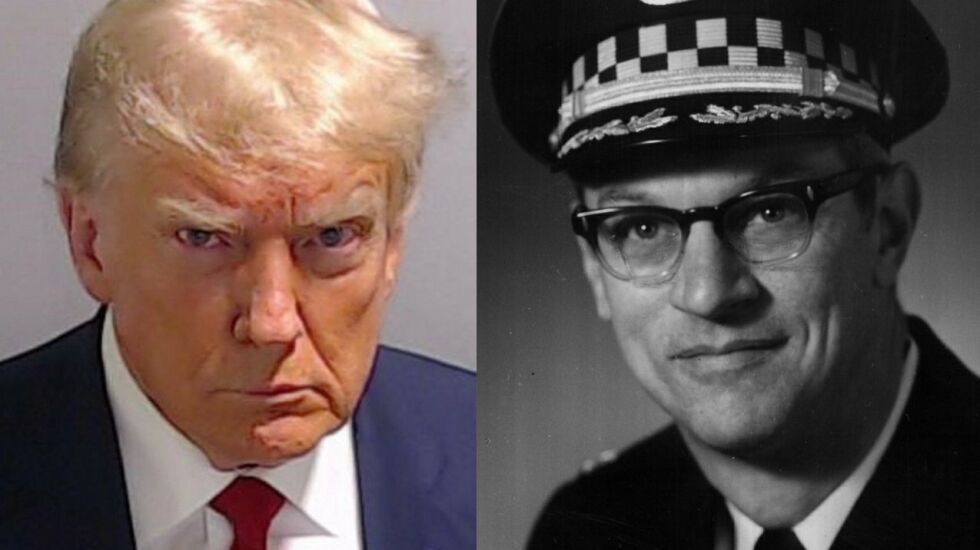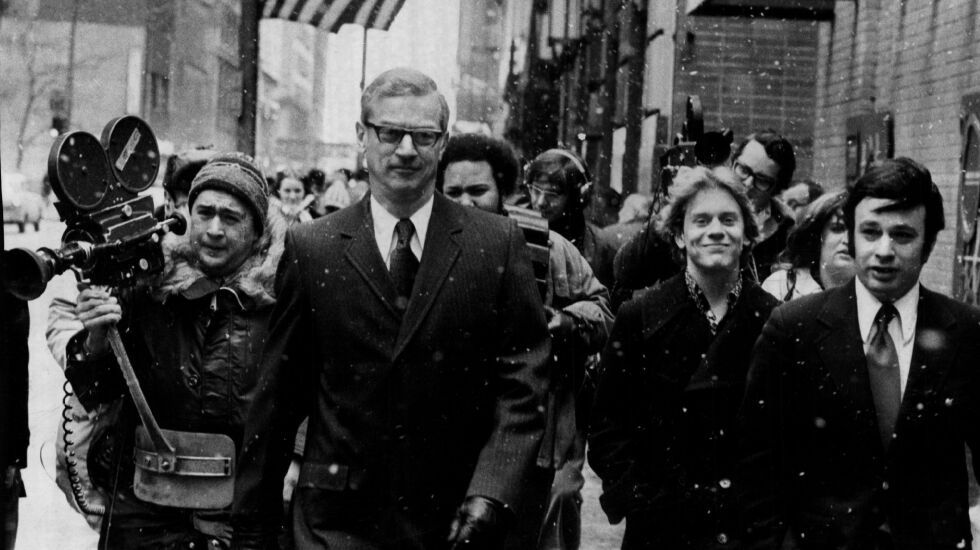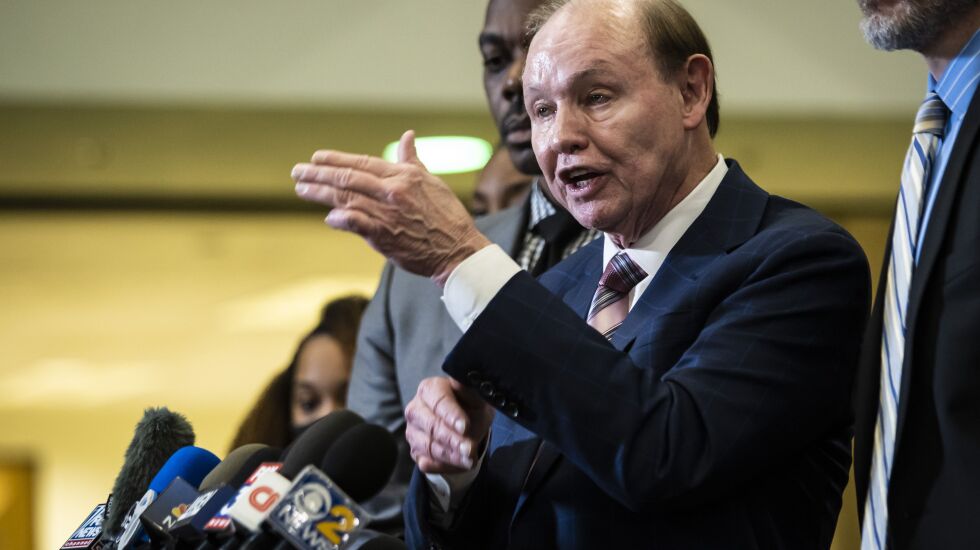
The Trump treadmill.
It’s exhausting, marching to the beat of an angry Trumpasaurus. The rhythm of Trump taunts in sync with reason … or treason … depending on your party leanings.
Now comes Donald J. Trump’s indictment accusing him of running a criminal enterprise in a sweeping electoral racketeering case in Georgia along with 18 other defendants, which has voters either seething in MAGA “Red” or blissing out in Biden “Blue.”
It also has media pundits questioning the ability of any one judge or jury to successfully try a huge legal caseload of 19 defendants at the same time; let alone produce a timely verdict before the 2024 presidential election.
Obviously, there is no precedent for prosecuting a former U.S. president alongside enough fellow defendants to field opposing baseball lineups.
But prominent Chicago trial attorney Dan K. Webb insists the number isn’t that big a deal.
“Look, it doesn’t matter whether you are a U.S. president or a janitor,” said Webb, who turned down an offer to represent Trump in 2018 over unrelated legal troubles.
“The ability of one judge and one jury to successfully try such a huge caseload is possible – and it happened in Chicago in 1973,” said Webb.
He would know. Webb was one of the federal prosecutors in the sensational trial of Chicago Police Cmdr. Clarence Braasch, who was accused of leading a major “criminal enterprise” within the police department from 1966 to 1970, along with 23 other defendants.
“The Braasch trial took four months,” Webb told Sneed in an exclusive interview.
“Each defendant had … [his] own attorney, and we tried all 23 Braasch defendants at once before one judge and one jury, getting convictions on all but two,” said Webb, who now heads the prestigious Winston & Strawn law firm.
Braasch’s “vice club” of police officers extorted hundreds of thousands of dollars from North Side nightclubs and bars during a four-year spree, while Braasch served as commander of the old 18th District.

“That case put me on the map,” added Webb, hired by U.S. Attorney Bill Bauer’s office in 1970, straight out of Loyola Law school, where Webb graduated at the top of his class — fulfilling a promise he had made to the law school’s dean, John Hayes.
“He gave me a break, and I am forever grateful,” said Webb, who described himself “as just a country kid arriving in Chicago for the first time in my life … in my only suit and tie … and just enough train money in my pocket to go back home.”
Later, during Webb’s stint as Chicago’s U.S. attorney from 1981 to 1985, he oversaw the “Operation Greylord” trials of crooked Cook County judges and the “Marquette 10” trial of Chicago cops accused of pocketing drug dealer cash.
Still practicing at warp speed at the age of 77, Webb made headlines over the last few years as the special prosecutor in the case of Jussie Smollet, who was eventually convicted of disorderly conduct for making false statements to Chicago police. The actor is appealing the conviction.

Webb’s clients as a defense lawyer have included former U.S. Rep. Dan Rostenkowski, former Gov. George Ryan; and former U.S. Rep. Jesse Jackson Jr. Last year he was top legal counsel defending Fox News in the notorious Dominion Voting Machine case.
I’ve known Webb for 43 years, but it seemed like a good time to ask how a kid raised in a small farming town in downstate Illinois, whose dad was a mail carrier and whose mom was a dental assistant, aspired to become one of the nation’s top trial lawyers.
“It was due to a very special woman,” he said. “Josephine Johnson, my high school guidance counselor.”
Oh, my.
“Let’s just say I was engaged in shenanigans while growing up in Bushnell,” said Webb, who was sent to Johnson “for direction.”
This is how Webb remembers the dialogue they shared.
Ms. Johnson: “Dan … what do you want to do when you leave high school?”
Webb: “I don’t know.”
Ms. Johnson: “Well, I noticed you were hell on wheels in a school debate last week. You ought to become a trial lawyer.”
Webb: “What’s a trial lawyer?”
Webb said Johnson “took me under her wing; got me on track, immediately bought me biographies with her own money, books of three famous American trial lawyers: Chicago’s Clarence Darrow and the West Coast’s Earl Rodgers and Louis Nizer, and told me to read those books to learn what trial lawyers do.”
“A week later I told her I’d made up my mind to be a trial lawyer. And that was it … and I never changed my mind.
“We stayed in touch for 40 years, and I gave the eulogy at her funeral 15 years ago,” he said.
“She changed my life.”
Now that is one helluva closing argument.
Sneedlings …
Saturday birthdays: McCaulay Culkin; 43; Branford Marsalis; 63. ... Sunday birthdays: Tommy Sands, Billy Arnot, ageless and priceless; Tuesday Weld, 80; Ron Magers, 79.







